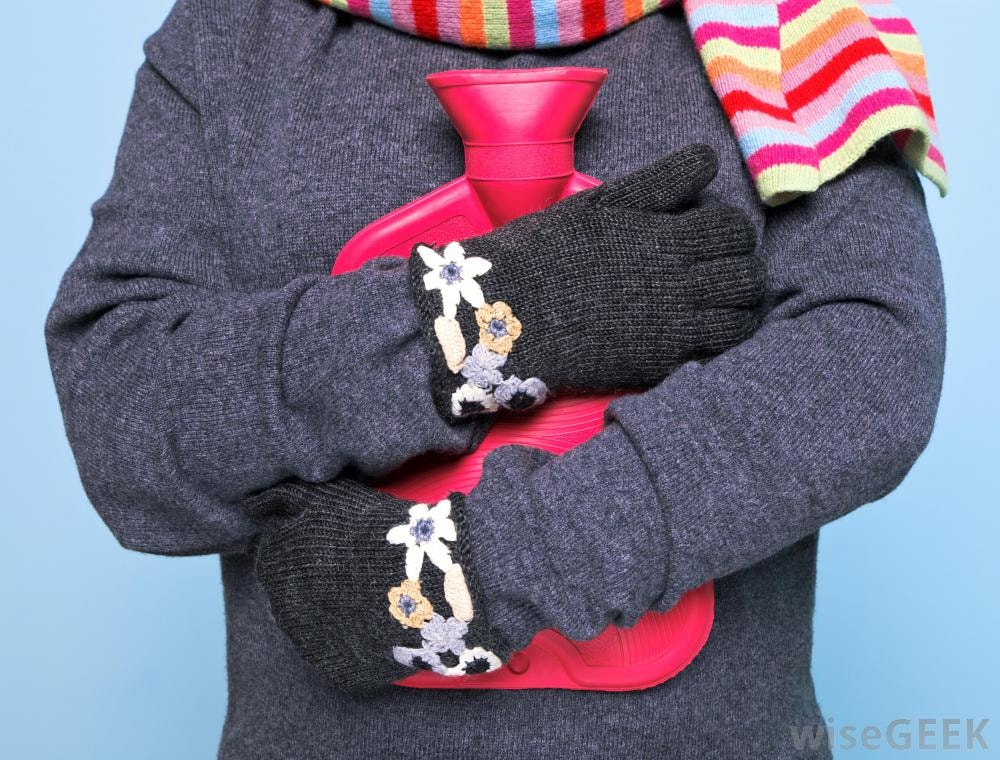How to keep warm in winter?
The whole world is experiencing the harshest weather days of winter, from West to East immersed in snow or freezing cold. Winter weather makes people susceptible to infectious diseases such as coughs, colds, flu... To protect health in winter, Dr. Fionnuala McKinney, in charge of public health in Northern Ireland, said: "Prevention is always better than cure, there are very simple things that everyone can do to ensure health in harsh winter weather conditions."
Below are 10 tips from medical experts not only for those who are sick but also for those in normal health to get through the cold winter.
 |
Keep your home warm:Draw your curtains at dusk and keep your doors closed to prevent drafts. Use a hot water bottle or electric blanket in bed (but not both at the same time).
Wear warm clothes:This is the simplest and most effective way to keep the body warm. However, you should not wear thick clothes, but should wear thin clothes, in many layers, so that the cold wind cannot penetrate the body. For children, wearing many layers of clothes also helps to remove the child's sweat when playing or sleeping. If the child's sweat is not wiped off in time, it can seep back into the body and cause respiratory diseases.
Eat enough quality and quantity:Food is the most important source of energy for the body, it helps keep the body warm. In winter, to keep the body warm, you can use dishes made from spices such as ginger, garlic...
Recognize the signs of hypothermia:A normal human body temperature is 36.5 degrees Celsius, and 35 degrees Celsius or lower is hypothermia. Hypothermia usually occurs when a person is in a cold environment. Those at risk of hypothermia are the elderly, sick, or infants. If someone has just returned from a cold place and has symptoms such as shivering, fatigue, lethargy, slowness, shallow breathing, weak pulse, lack of coordination, or unconsciousness, they may be suffering from severe hypothermia. In this case, they must be kept warm immediately and taken to the nearest medical facility.
Limit alcohol consumption:Many people think that drinking alcohol in cold weather will warm the body. However, drinking too much alcohol causes unpredictable harm to health. Drinking alcohol, especially getting drunk in cold weather, is very dangerous and can easily cause stroke. Many cases have died from drinking alcohol. When drinking alcohol, the blood vessels dilate, when exposed to cold weather, the blood vessels suddenly contract, blood pressure easily increases, causing stroke and leading to death. The best way is not to drink alcohol, if you have to drink and get too drunk, do not go out in the cold immediately.
Always active:If the weather is too cold, you should limit going outside, especially young children. Children should stay home from school. Adults, especially the elderly, should do light exercise indoors, should not sit in one place. You should move around the house at least once an hour.
Helping others:Stock up on food, medicine, and water. Check on family members, especially the elderly and children, to see if they need any help. These are the groups most vulnerable to health problems during extreme weather.
Be careful when moving:Driving in winter is very dangerous. On foggy, rainy and cold days, the road is slippery and can easily lead to unexpected accidents if traveling on complex terrain such as mountain passes...
Follow the weather forecast:If you intend to travel or go out in cold and rainy weather, you should closely monitor the weather forecast before leaving home. In addition, you should prepare for any unexpected situations that may occur on your way.
Attention to fire and explosion:In very cold weather, many households often use heaters, electric blankets, and fireplaces of all kinds. Strictly follow safety regulations when using electrical appliances, turn off the power when not in use or when no one is home. Do not use portable heaters to dry clothes. Install a fire alarm to warn of smoke or carbon monoxide.
According to SKĐS/Derryjournal






